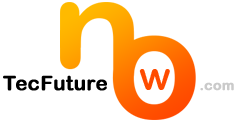- Description
-
Details
If you have kids at home, you must be familiar with the fact that children these days touch gadgets more than physical books. iPads became increasingly popular while hardcover novels were replaced by Kindle e-book readers. Not only this, technology has also reached the classrooms in the form of smart classroom solutions. Now the question stands, should physical books be replaced by Digital Textbooks? Can tablets be a substitute to notebooks and textbooks? In this blog we will discuss in detail the economic and environmental cost of physical books and how they are on a verge to get replaced by tablets and digital textbooks. Let's read what's better among textbook vs tablet.
Textbook vs Tablet: What is digital textbook?
Digital Textbook is a digital book or an e-book that serves as a textbook for students. They are a major component of smart classroom solution and technology-based learning structure. In a single device, multiple digital textbooks can be carried while a physical textbook is required to be carried separately.
In this respect, digital textbook is much more convenient than the physical textbook. It is not bulky and doesn’t take up much space in a bag. As we move further in this blog, let’s study some other advantages and disadvantages of digital textbooks over physical textbooks.
Pros of Digital Textbooks
- Digital Textbook is easier to carry. An e-book can be installed in an iPad or a tablet and can be carried around easily. On the other hand, each physical textbook has to be carried separately, making the school bag bulkier.
- Digital Textbook can never be lost. Many students tend to lose their textbooks and notes right before the examination. However, this cannot be the case with digital textbooks. The e-books can be accessed any time using a set user ID and password.
- Tablets or Digital Textbooks let students access the information more quickly. Students can reach the very part they want to read quickly. They can also make annotations on the text, which can be erased later.
- Tablets or Digital Textbook results in less consumption of pen and paper. Students can make digital notes on their tablets without having to need a physical notebook and pen. This will reduce their cost of purchasing a textbook and pen. Also, it reduces education’s carbon footprint in the world.
- Tablets or Digital Textbook can contain multimedia files like videos and animations which is not possible in case of physical textbooks.
- Any change in curriculum can be instantly updated in digital book without costing anything extra. In case of physical textbooks, entire book needs to be changed.
- Tablets prepare students to face technology in the later stage of their life. Students can get a hang of technology and pursue the subject of their choice later.
- Games and quizzes in tablets and digital textbooks make learning more fun and interactive. Also, teachers can customise the course content as per their students’ capability and speed.'
Read More: How technology in education can reduce absenteeism
Cons of Digital Textbooks
- The concept of Digital Textbook is still challenging in areas with limited access to electricity and internet.
- Tablets and other such devices are associated with health problems like poor eyesight, anxiety, headache and eyestrain.
- Tablet is more expensive than physical textbooks. However, it is a one-time investment. After purchasing a tablet, one needs to install an e-book for free without any additional charge.
- Students can lose their focus from studies. Some students would be more interested in games and apps instead of real course content.
- Once broken, a tablet has immense repair cost which students of marginalised section of society cannot afford.
- Reviews
-
